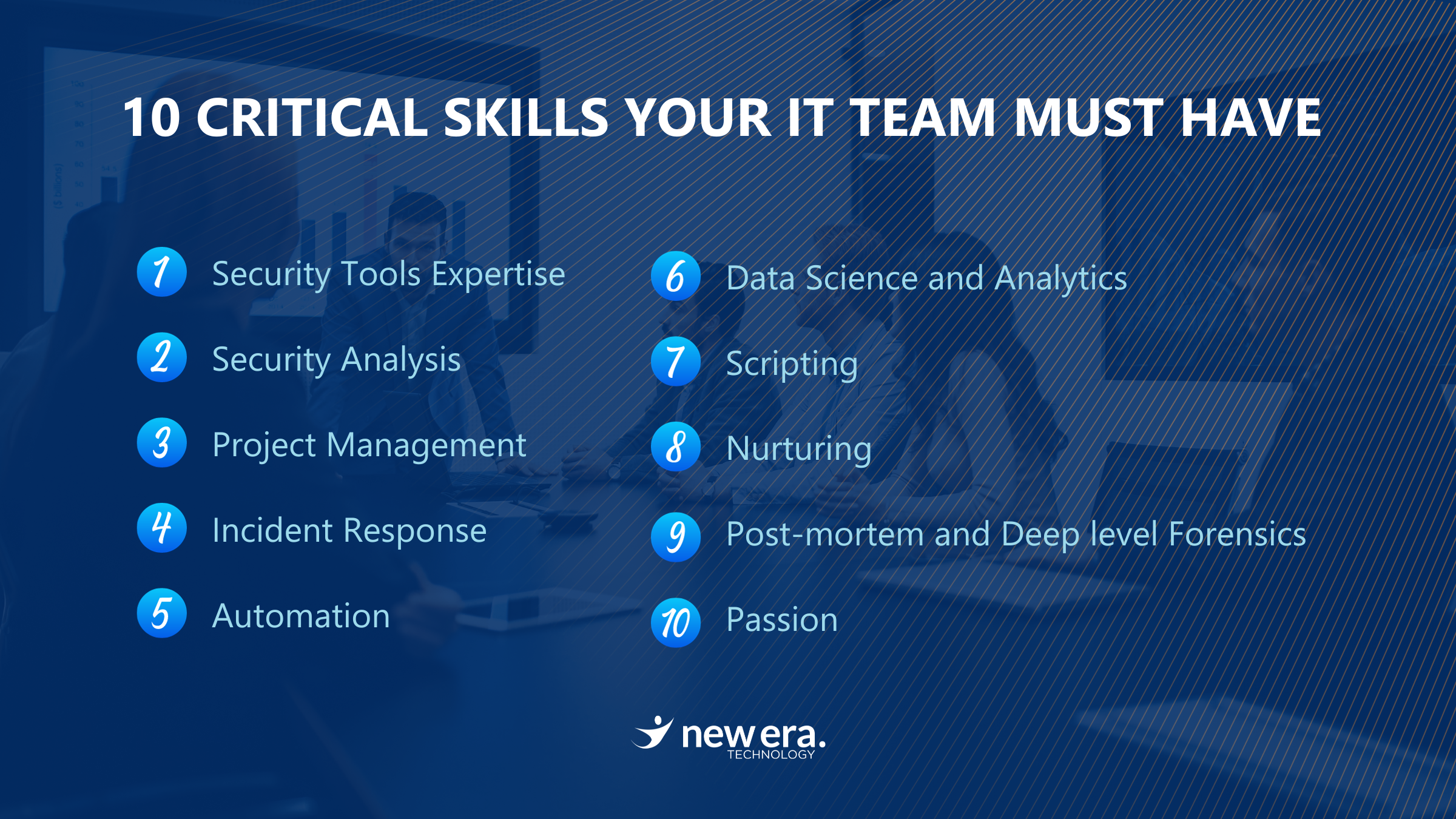Rising cyber-attacks showcase increased sophistication in hacking organisational data. A weak security posture leaves your business susceptible to threats like data breaches and ransomware, affecting reputation and sensitive information.
Organisations and service providers actively identify vulnerabilities and mitigate cyber-attack impact. Microsoft, for example, invests around $20 billion to enhance security, fortify products, and improve capabilities. Ensuring a robust security stance is vital during digital transformation and technology expansion.
When addressing your IT requirements, it’s important to recognise the substantial benefits that many businesses experience from selecting Managed IT services. The proficiency, scalability, and continuous support offered by a dedicated Managed IT service provider frequently emerge as a more effective and economical solution.
Alternatively, if you decide to retain an in-house IT team, it is crucial to guarantee they possess the necessary skills and domain expertise.

As a business owner, it pays to have a fully-equipped team proficient in managing security, incident response, identifying threats, and implementing mitigation strategies.
Explore the essential skills your IT team must possess to ensure comprehensive security for your business operations.
1. Security Tools Expertise
Ensure your IT team stays current with cybersecurity trends, using internal and external security measures. Invest in training for a strong security posture, incorporating modern models like Zero-Trust and Data Loss Prevention (DLP). Avoid relying on basic security tools without proper analysis, as identifying and fixing defects proactively saves costs in downtime and security breach remediation.
2. Security Analysis
As cyber threats are on the rise, the demand for skilled security analysts is soaring. Experienced analysts reduce complexities by discerning crucial data, interpreting it to identify potential attacks, and minimising their impact. Modern technologies like AI, Big Data analytics, and Machine Learning aid in identifying and mitigating security vulnerabilities. For robust security, consider hiring a top-tier analyst and regularly assess your IT infrastructure using services like Vulnerability Assessment from New Era Technology.
3. Project Management
Securing skilled IT security managers for diverse projects will be challenging. Currently, security project managers are often tied to administrators, limiting their scope. A dedicated security manager is crucial for a well-defined, continuous approach to enterprise security and governance.
4. Incident Response
Quick threat identification is vital for effective mitigation. Given the evolving threat landscape, incident response is crucial, and external specialists, like New Era’s Disaster Recovery service, can efficiently handle security incidents. Early response limits breach damage and ensures a prompt return to normal operations. Employees with a solid understanding of the IT security ecosystem enhance incident response by seamlessly integrating services.
5. Automation
Strategic decisions rely on business intelligence and data analytics. Traditional security teams struggle to match the pace of evolving threats. Automated solutions with AI and Machine Learning preemptively identify and address attacks, allowing IT staff to handle follow-up tasks. IT security professionals need skills to interpret business intelligence and make informed decisions based on insights.
6. Data Science and Analytics
Analytics-experienced employees, especially in Algorithms, Machine Learning, AI, and Predictive Analytics, excel in the Big Data environment. Vital for e-commerce and BFSI sectors, these skills monitor customer behaviour and provide futuristic insights into vulnerabilities. Honed data analytical skills are crucial for extracting pertinent information. Securing networks from the start saves long-term costs by investing in solutions that protect data, information, and users. A skilled security analyst understands new designs, tests systems, and possesses a deep understanding of critical organisational data.
7. Scripting
Scripting streamlines tasks for IT professionals, saving time and resources. Languages like Python and Perl interface with security platforms, aiding security professionals in configuring and managing networks. Scripters and developers play a crucial role in solving complex security problems. Alternatively, consider outsourcing network configuration and management with New Era’s Programmability and Automation service for optimised service delivery, scalable deployment, and increased agility.
8. Nurturing
Security professionals thinking like cybercriminals enhance their ability to anticipate, identify, and mitigate attacks like spear phishing. Experience is key in handling suspicious behaviour flagged by Network Intrusion Detection Systems (NIDS). Remaining calm under pressure and following proper protocols are crucial for stemming compromised data flow and reducing breach costs. Trained Ethical Hackers, in high demand, collaborate with security teams to identify potential vulnerabilities exploited by malicious hackers.
9. Post-mortem and Deep-level Forensics
A security team should adeptly update safety frameworks for changing network components and emerging threats. This framework guides breach management and subsequent steps. Security incidents offer valuable learning opportunities. Conducting forensics and malware analysis post-incident enhances management and prevents future occurrences.
10. Passion
Effective security solutions rely on passionate professionals who are committed to continual learning about advancements in security technologies and evolving threats. Cybersecurity professionals must be passionate about their domain, actively engaging with online communities for constant improvement and innovation. The skills needed for an IT team to deliver effective security services are informed by extensive experience in the networking and IT security domain.
In conclusion, maintaining an internal IT staff can be advantageous with the right training and experience. However, it’s important to recognise how quickly technology is developing and the growing complexity that goes along with it.
While you enable your internal team, take into account the revolutionary benefits that Managed IT services provide. Specialised expertise, proactive support, and scalable solutions from managed IT providers enhance skills, ensuring competitiveness in today’s dynamic business environment.
Ready to Enhance Your IT Team’s Effectiveness in the Evolving Tech Landscape?
If you are looking for a reliable technology partner to enhance your in-house security capabilities or need a Managed IT service seamless and efficient approach to technology management toward business growth with confidence, contact us now, and we will be glad to help.

 Australia
Australia Canada
Canada LATAM
LATAM UAE
UAE United Kingdom
United Kingdom United States
United States




